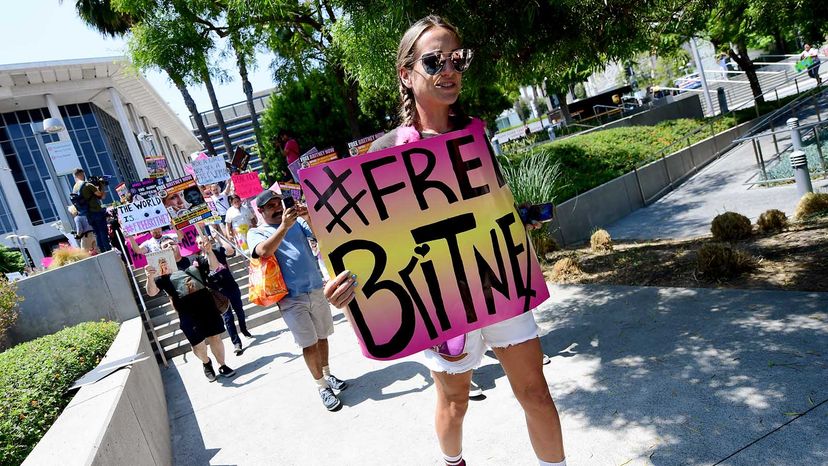Spears' case is unique because conservatorships are most often used in cases where someone has significant cognitive impairment. Conservatees are typically older, sometimes with health issues like dementia or Alzheimer's. Conservatorships also are used in cases where people have considerable developmental disabilities.
"A conservatorship is only appropriate if a person cannot make responsible and safe decisions for themselves, and only if there are no other options available," Akins Smith says.
But since 2008, Spears has released four successful albums — two of which went platinum; she's been a judge on both "The X Factor" and "American Idol"; and grossed $138 million during a four-year residency at Planet Hollywood Resort & Casino in Las Vegas.
Kristin J. Lieb, author of "Gender, Branding, and The Modern Music Industry: The Social Construction of Female Popular Music Stars" and associate professor in the marketing communication program at Emerson College says Spears hardly seems like someone who can't take care of herself, and her case shows how easy it is to strip women — even incredibly powerful and high-profile women — of their rights if they are declared mentally unwell.
"She's well enough to make albums, tour and establish Vegas residencies, but not make personal decisions? You can't have it both ways," Lieb says via email. "She's unwell and you scale back her obligations to protect her, or she's better, and you return her decision-making authority accordingly."
Attorney Akins Smith says she doesn't know of any cases similar to Spears.' "Britney Spears' case is unique because she is young, working and earning significant income, and she obviously has some capacity to make decisions based on her social media engagement," she says. "To play devil's advocate, it's possible Britney Spears has a mental health condition, making it difficult for her to consistently make healthy, safe, responsible decisions for herself."
The Atlanta lawyer says she has seen conservatorships for young people in those types of situations. However, she says, they are less common than typical conservatorships established for people with intellectual or developmental disabilities and those created for elderly people.







